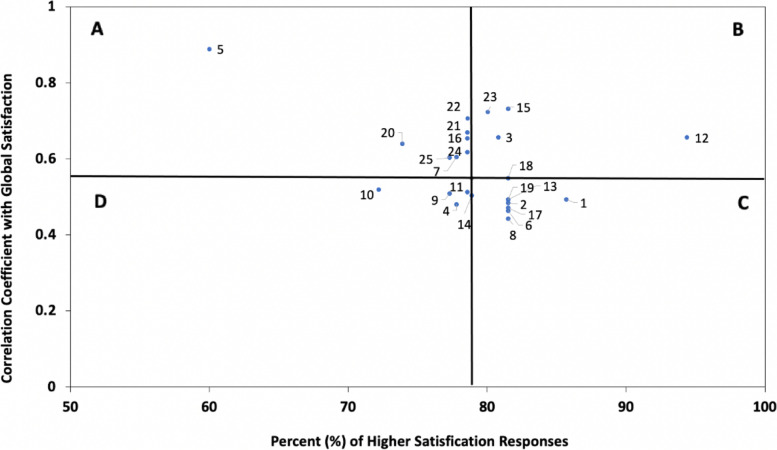Fig. 2.
Importance-Satisfaction Grid of High Priority Areas for Quality Improvement for the Muslim Patient Population. a Importance-Satisfaction grid represents family member responses on behalf of the Muslim patient population (n=28).b Correlation coefficients for survey items were calculated using Spearman’s Rho and significant coefficients are represented on the grid (p<0.05).c The median correlation coefficient was rs=0.549 and 78.9% for median percent of higher satisfaction responses.d Survey items represented above include: Care was consistent with patient wishes (1); Decisions made without enough family input (2); Doctor listened to concerns (3); Nurse listened to concerns (4); Chaplain listened to concerns (5); Amount of information doctors provided (6); Kept informed about family members condition (7); Satisfied that you received consistent information (8); Told how pain would be treated (9); Amount of help family member got with breathing (10); Would have liked more info on medications (11); Amount of help dealing with anxiety/sadness (12); Family member treated with respect/dignity (13); Concerns about personal care needs being met (14); Wanted more info on what to expect while dying (15); Able to access doctor when needed (16); Doctor spent enough time with you (17); Confidence/trust in doctor (18); Confidence/trust in nurse (19); Satisfied that doctor explained things honestly (20); Satisfied that you received timely updates (21); Clear which doctor was in charge of care (22); Clear which nurse was in charge of care (23); Satisfied that health care staff worked as a team (24); Problems with doctors not knowing medical history (25)

